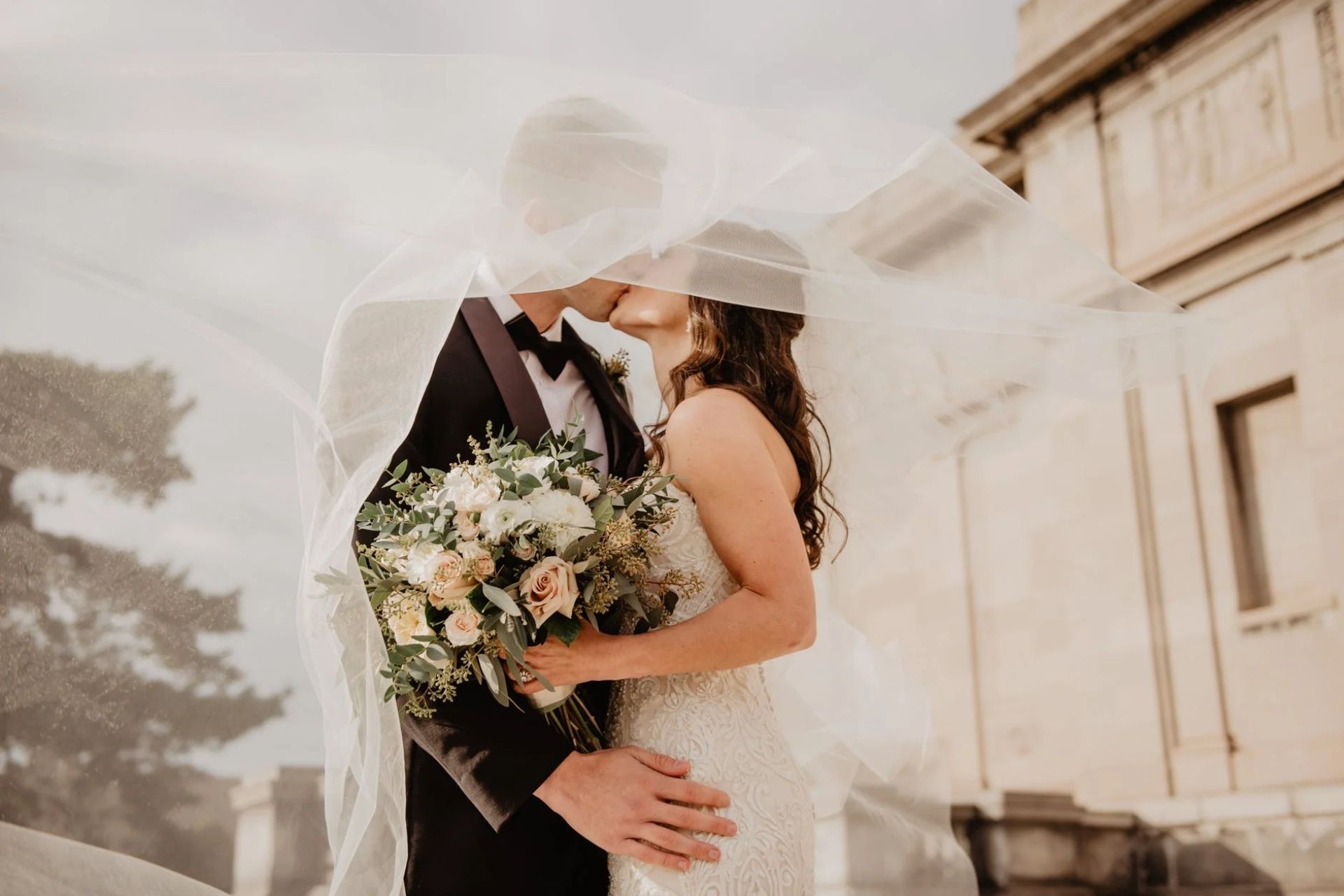Life • 03/07/2022
How to Breakdown Cost of Wedding Expenses

Revivalist is a reader-supported endeavor and our posts may contain affiliate links. When you buy through links on our site, we may earn an affiliate commission.
When planning a wedding, you have too much on your mind to worry about what funds should go where. No matter how large your big day is, every wedding has specific components that you should account for when planning your budget. Having a breakdown cost of wedding expenses can affordably help you plan out your big day.
Elements That May Influence Your Budget
Whether your budget is grand or small, you might run into a few roadblocks trying to stick with it. These elements are always fluid and are never the same for any couple getting married.
1. Your “Dream” Element
Whether it’s a venue or a dress, finding something that you only dreamed of could explode your budget a bit. You still might budget effectively elsewhere, but you need to be prepared if you need to religiously adhere to your budget due to your “dream” element potentially blowing up your costs. If your dream venue or dress comes in at under the recommended amount, you’ll have even more room in your budget to potentially find pricier, higher-quality vendors and decor that you enjoy.
Similarly, specific venues may be all-inclusive. They may provide you with catering, lighting, a DJ and more, all for the price you pay for the venue. This great bundle can leave room in your budget for other expenses — just make sure to read the fine print of your contracts, so you know everything that is included and what you still need to look for. Some venues that include catering might require you to use their cake baker, too, so it’s essential to read over all the fine print.
2. Your Guest List
Even if everything else is the same, your guest size can drastically alter whether you stick within budget or whether you go much higher or lower than you were expecting. Because wedding food can tend to be pricier, inviting more people means you’re potentially spending thousands of more dollars depending on the number.
3. The Time of Year
Certain venues have off-seasons and off-days. For example, if your dream venue is in the mountains, you may choose to avoid the fall season. Because of the leaves changing colors, many people will opt to get married in the beautiful orange and yellow colors. Therefore, if you want to save money on your wedding, you may opt for an off-season like winter or early spring.
Talk to the venue you like. They know when their off-season is and maybe even which day would work best for a wedding. Weekend weddings are popular, but Saturday is the most popular day to get married so guests can arrive on Friday evening. Still, you may find that weekday or even Sunday weddings are so much more affordable. Keep in mind the day you want to get married on when thinking about your budget.
Your Budget Breakdown & Cost of Wedding Simplified
Remember, budgets are always fluid. Some of these categories may not be part of your wedding — such as if you’re using a family home for a venue instead of renting one for the day. What you don’t spend in one category can always be allocated to another.
1. Venue
Your venue will be the most significant chunk of your budget. If your venue bundles catering, expect about 50% of your wedding budget to go to venue and catering. Of course, depending on the venue you choose, putting both together may not be possible. In that case, aim to spend around 25%, maybe less, on your total venue budget. If you find room in your budget after you’ve secured your other vendors, you could perhaps check to see if your venue supplies any add-ons.
The average venue in the United States costs around $6,000 for both the ceremony and reception. Choosing one venue to stick with the whole day is more cost-effective and can help your budget stretch further. Plus, it saves on travel and transportation for your guests.
2. Catering
If catering and the venue are priced together, consider this category of your budget taken care of. If not, you’ll want to scale the percentage of your budget it takes up depending on the price of the food and your intended guest count. Different catering packages may offer different prices for things. Ideally, you would want to spend no more than 25% of your budget on catering, though that number has some leeway depending on the size of your wedding and budget.
You also want to account for the baker if you plan to have a cake or dessert table. In some cases, the baker is included in the catering package. If you don’t want a luxurious wedding cake with an intricate design, consider getting a cake from a grocery store. Grocery store cakes can be just as delicious with simplistic designs and tiers that can still uphold the elegance of a wedding.
3. Photography and Videography
When looking at vendors, the most crucial thing to remember is that you get what you pay for. Photography — and videography, if you want — is an essential part of your wedding day, as they are the most tangible memories you’ll be able to look back on later in life. As such, you should allocate about 15% of your budget, if not more, to your photography and videography. Make sure you book this vendor early, as good photographers tend to fill up fast!
4. Attire
Your attire accounts for everything from your and your partner’s wedding attire to the hair and makeup one or both of you may receive on the day of. Make sure about 12% of your total budget goes toward your look on the big day. You may opt to cut corners and have one of the members of your wedding party work on your hair and makeup — or do it yourself. That way, you can attribute more to your attire rather than your hair and makeup on the big day.
5. Entertainment
Your entertainment encompasses everything from your dancing music at the reception to the songs you walk down the aisle to. You might find it most efficient to have a DJ or band playing for the ceremony, cocktail hour and reception — and it may be the most cost-effective option, too. DJs are generally cheaper than live bands, but the option you choose depends on the overall vibe of your big day. Try to allot around 10% of your wedding budget to this category.
6. Decorations
Consider cutting back on decorations if the venue you’ve chosen is already elaborate. Some venues will be beautiful enough — and the main attractions of your wedding are you and your soon-to-be spouse! Still, decor can make the night, especially if you’re adhering to a wedding theme. Aim to stick to around 7% of your budget for this category. You might choose to DIY some decor and allow rentals to take up more of the 7%.
7. Paper
All of your paper needs should make up no more than 2% of your budget. Depending on how your expenses fall in the other categories, you may choose to spend more money in this field. Paper needs include your invitations and all of their inserts — and you might decide to include save-the-dates and thank you cards, too. Many affordable sites allow you to personalize your own cards and invitations, which could make the cost even lower when you print them yourself.
8. Wedding Bands
While your engagement ring may have already been paid for, you still have to account for your and your partner’s wedding rings. If you plan to use an heirloom or one that has already been in your family, you can save some expense. Try to aim for about 4% maximum on the wedding rings. Remember, even if you can’t afford the rings you want now, you can always upgrade them in the future.
9. Optional Additions
If you have any extra room in your budget or want to include one of these in your wedding, they can add a little oomph to your big day, though they aren’t necessarily required. Of the optional additions, a wedding planner is one of the most important. Especially if you’re feeling stressed out planning the big day on your own, a wedding planner can be crucial in helping you to organize your wedding. Even if you opt for a month-of or day-of coordinator, their skills and services can go a long way.
Transportation for your guests might be an excellent gift to them. That way, you don’t risk anyone attempting to drink and drive. If you host a dry wedding, though, you may find that transportation is an unnecessary expense. Similarly, favors might be a good idea, but they aren’t necessary in order for your guests to have a good time. Try picking a favor that your guests can use or eat rather than something small that can easily get lost or thrown out.
The Breakdown Cost of Wedding Is What You Make It
One of the most essential parts of creating the breakdown cost of wedding is determining who will pay for what. As soon as you set the budget for your wedding, find out whether families or just you and your future spouse will be paying for things. Once you know, you can begin saving and prepare to find vendors that fit all of your needs — while staying within your budget!
Subscribe to Our Weekly Newsletter
We would love to connect deeper with you!


